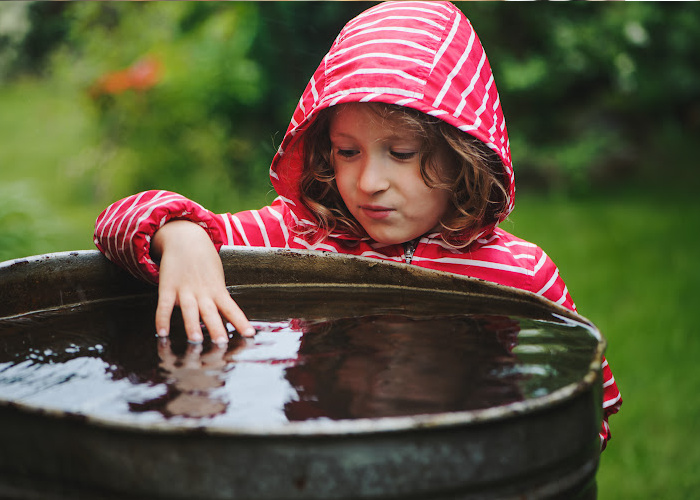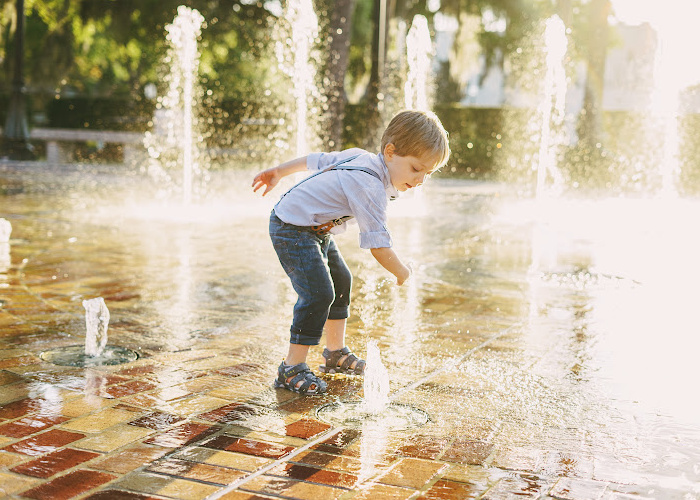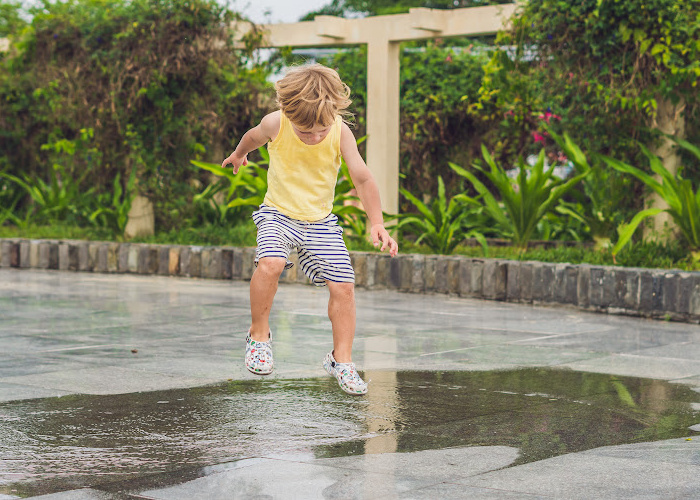It's crucial to know that students with autism and ADHD need special study strategies. Autism…

Why are Autistic Kids Are Attracted to Water?
Water holds a magical allure for many young children, but for some kids on the autism spectrum, the attraction goes beyond just fun and games. There are several reasons why autistic children may be particularly fascinated by water play and activities.
Sensory Experience
One of the main explanations relates to the sensory experience of water. Many autistic children are sensitive to sensory input and have different reactions compared to neurotypical kids. The sensations provided by water can be soothing, stimulating or distracting in positive ways.
The gentle pressure and resistance of water can have a calming effect for some. For others, the warmth and movement of water can be enjoyable. The auditory qualities of splashing, dripping or pouring water can also hold appeal. Since autistic children often crave sensory input, the multi-faceted sensory nature of water likely adds to the interest.
Predictability
The laws of physics make water fun predictable, which can be reassuring for kids who are uneasy with surprises. When objects are dropped in water, they will sink or float based on their density. Water will always flow downhill and fill up containers from the bottom up. Things that are water-resistant will stay dry. This reliability makes playtime with water less fraught with uncertainty.
Knowing what to expect helps reduce anxiety in autistic children. While neurotypical kids also enjoy the predictability of water physics, it is an even bigger draw for kids on the spectrum. The orderliness provides a sense of control that calms the mind.

Hyperfocus
Some autistic children have a tendency to develop hyper-focused interests and hobbies. Once they hone in on something they enjoy, they have a strong urge to repeatedly engage with the object or activity. Getting immersed in the pleasurable experience produces feelings of calm and contentment.
For some kids, water becomes the object of fascination. They may spend hours experimenting with sinks, bathtubs, swimming pools, lakes or garden hoses. The sheer volume of ways to interact with water fuels the preoccupation. Kids float toys, mix soaps to make bubbles, fill and dump containers, splash in puddles – the possibilities are endless.
Learning Tool
Water also provides rich opportunities for learning, especially in areas that appeal to autistic children. For example, kids can strengthen motor skills by manipulating squirt bottles or pouring between cups. Physics concepts like displacement and gravity are reinforced through sink/float activities. Math skills are honed by measuring water volume. Cause and effect relationships are observed by mixing substances into water.
Since children with autism often have strengths in systemizing behaviors and thinking, they can further develop these cognitive talents through water play. Mastering new principles and abilities boosts confidence and cognitive growth. Their deep interest makes them eager students.
Final Thoughts
With attentive supervision and proper safeguards, autistic children can safely enjoy the pleasures and learning opportunities water provides. Understanding why water captivates their interest allows parents to better support sensory needs while prioritizing safety.

Frequently Asked Questions
Water holds an innate appeal for many young kids, but autistic children may be uniquely fascinated. Here are answers to common questions about this interest.
Why are some autistic kids obsessed with water play?
The sensory experience of water can have a calming or pleasantly stimulating effect for kids sensitive to input. The laws of physics also make water play highly predictable. Knowing what to expect reduces anxiety. Plus, water offers endless opportunities for systemizing and mastery which appeals to autistic strengths.
How can water help autistic children develop skills?
Interacting with water builds fine and gross motor skills, knowledge of cause and effect, and concepts like displacement and gravity. The high interest level makes kids eager to acquire new abilities, boosting cognitive and social confidence.
Do children with autism enjoy swimming?
Many autistic children do enjoy swimming since it provides a sensory experience that can be both calming and stimulating. The water’s resistance and pressure can have therapeutic benefits. However, safety precautions need to be taken and swim lessons tailored to special needs are recommended.
Why is my autistic child so drawn to water but afraid of loud noises?
It is common for autistic children to have varied reactions to different sensory stimuli. The gentle sensation of water can be appealing, while sudden loud sounds can be frightening or painful due to sensory sensitivity. These polarized reactions reflect differences in how their nervous system processes various inputs.
Is playing with water a sign of autism in young children?
Enjoying water play is common for most young children and not necessarily an early warning sign of autism by itself. However, if a child becomes fixated on water activities to the exclusion of other learning and social interactions, parents should consult their pediatrician about further screening.
Can water therapy help my autistic child?
Some occupational and physical therapists incorporate water features into sessions to take advantage of its benefits for autistic patients. The resistance of water can help strengthen movement skills. And water’s calming effects aid emotional regulation skills. Consult your child’s treatment team to see if aquatic therapy may be helpful.
How can I keep water playtime fun but also educational for my autistic child?
Include cause-and-effect water toys and add counting, sorting or measuring activities. Have your child predict outcomes of experiments like sinking or floating objects. Use bath paints and brushes to practice writing letters and numbers. This transforms water play into a multi-sensory learning experience.



This Post Has 0 Comments